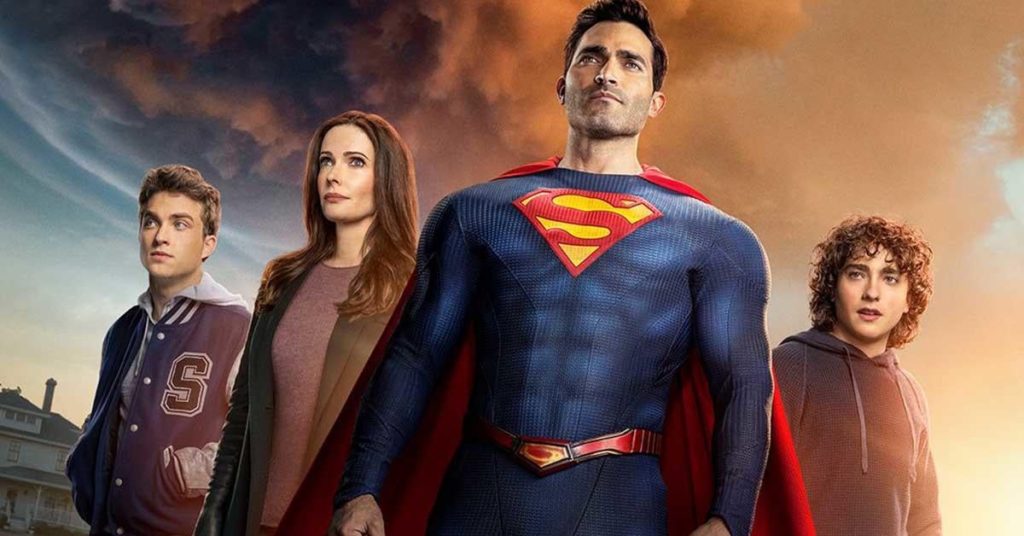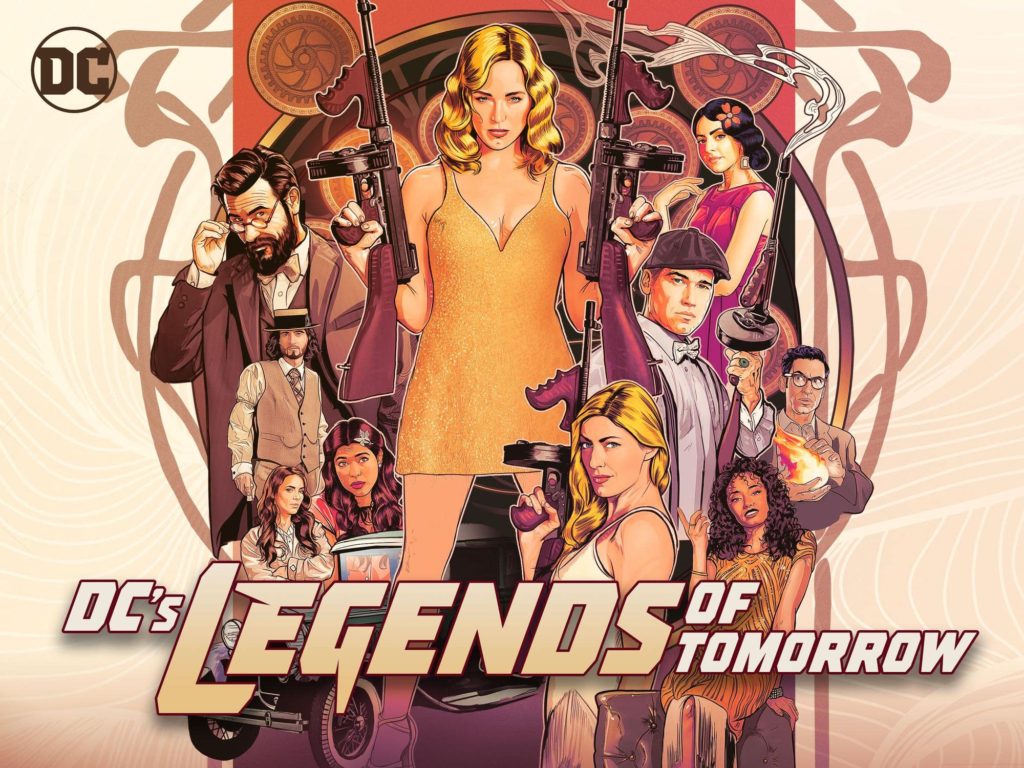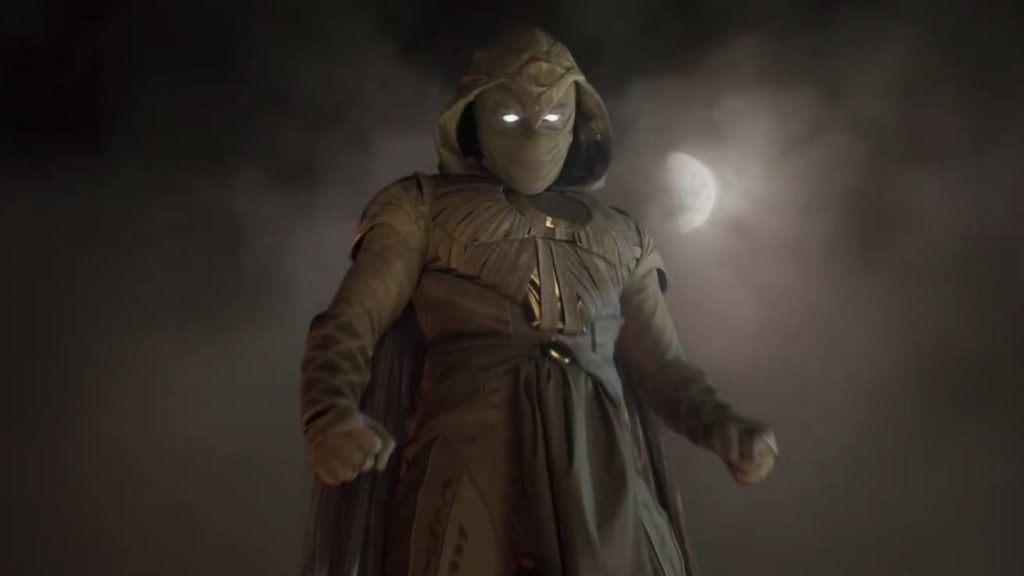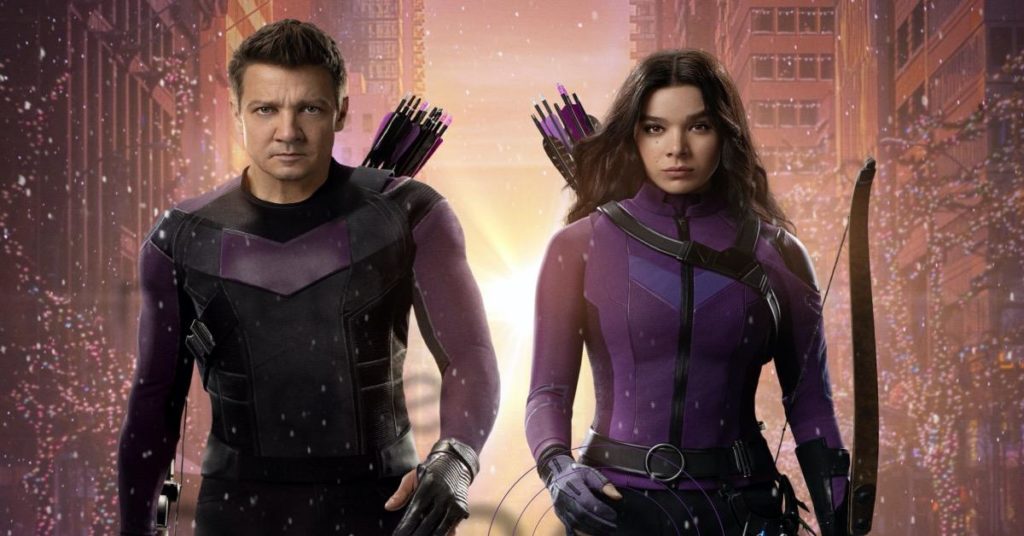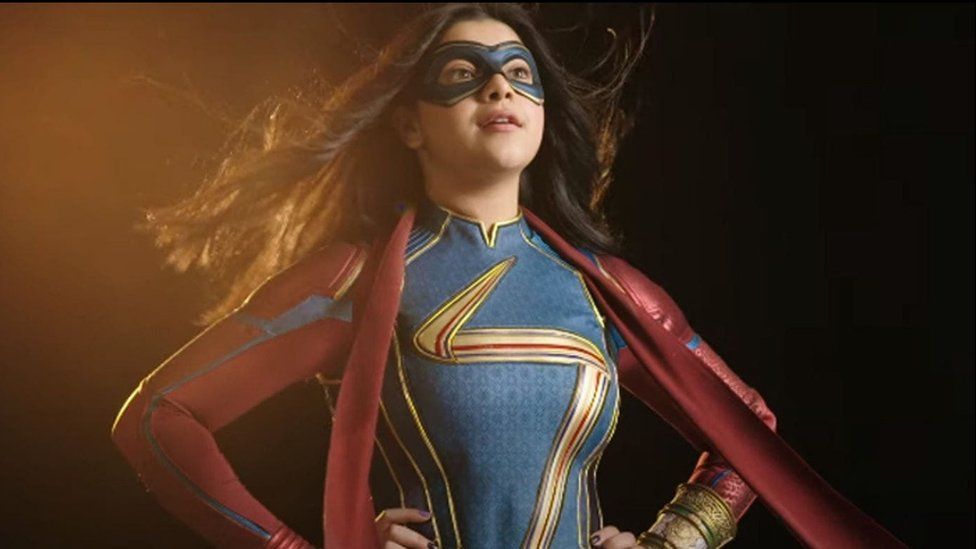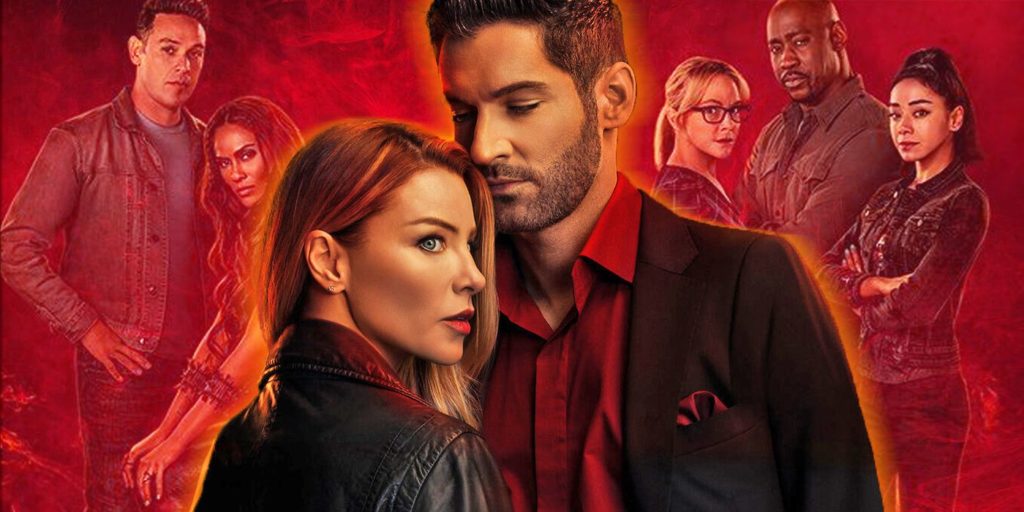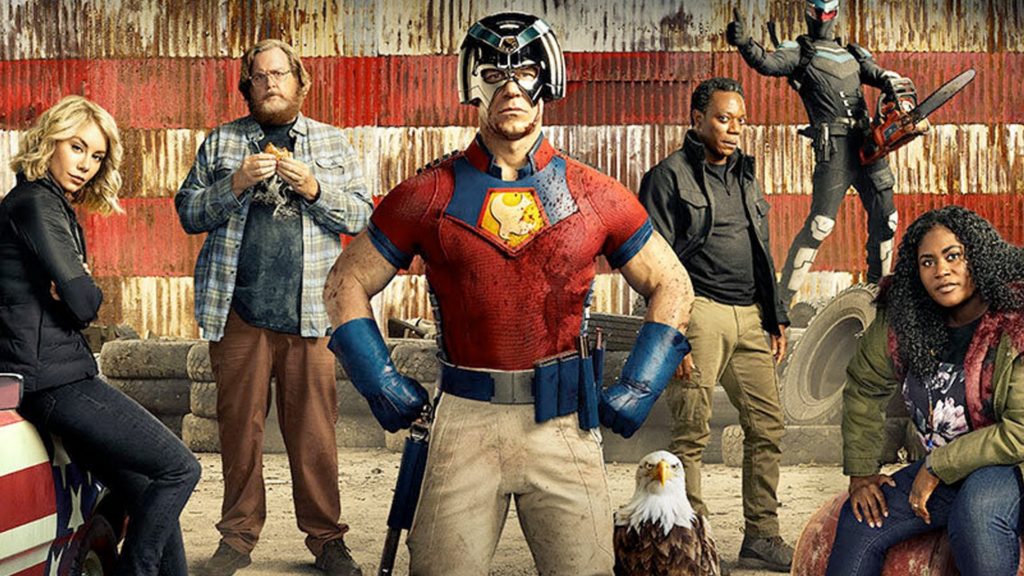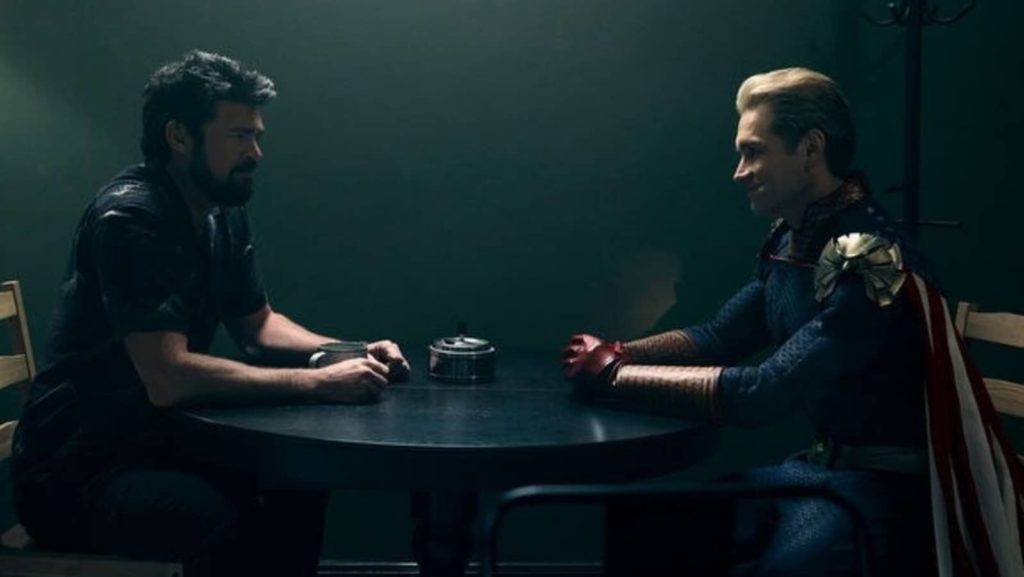10. Stargirl: Summer School
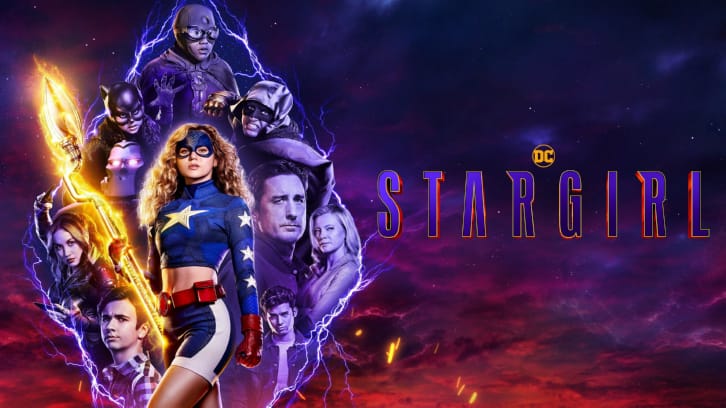
Image: CW
The first season of Stargirl hinged on lead heroine Courtney Whitmore’s sheer positivity: her hope, determination, and belief in those around her to be their best. So it turns out the perfect follow-up is a season that challenges all of that with a villain who preys on fear, hatred, and self-doubt, and a revelation about the original Justice Society of America that shakes her view of them to the core. Especially her step-dad Pat. They managed a great villain with Eclipso of all people (who in the comics has been either peak silver-age-goofy or peak 90s-try-hard-edgelord but rarely if ever in between) by turning him into a Freddy Krueger-style nightmare demon; introduced fun new characters like Zeke the mechanic, Thunderbolt, and a pitch-perfect Shade; and narratively breaking the season into two halves kept the pace from dragging. Only note… I know Eclipso’s true form was a lot of make-up but maybe he spent a little too much time as a creepy little kid. No offense to actor Milo Stein but man kid-form Eclipso was getting on my last nerve by the finale. Also two of their new characters are clearly going to join Solomon Grundy on team “save you for special episodes because you’re hell on our effects budget.” Still, a great superhero teen horror movie-turned-TV season.
9. Superman and Lois
Superman and Lois continues to break new ground with a decades-old character, while being a top two live action interpretation of said character, and that alone is worth celebrating. This season brought a new and surprisingly deep take on Bizarro (after an amazing misdirect that had us thinking Doomsday was coming) and Bizarro World (cube-shaped planet and all), concepts I thought it would be impossible to do well and take seriously at the same time, but dang it they get there; through cult leader Ally Allston they managed to make an effective, dynamic, season-long villain out of Parasite, a Superman villain I never thought could be stretched beyond one episode; they paired the two perfectly, which can’t have been easy; and they kept exploring the angle of the Kent family, now joined by John Henry Irons and his daughter Natasha. Everyone has an arc, the teen dramas aren’t oppressive, the dramatic moments and reveals hit, there’s a great redemption arc for last season’s main villain… honestly I only have two complaints. First, yes, I am disappointed they decided to completely and firmly sever themselves from the Arrowverse because having other heroes exist in this story felt too hard but we covered that in my Multiverse post; and second… this wouldn’t affect people watching it later on streaming, but they had way too many hiatuses. They’d air two episodes then go on break for three weeks, it really hurt the flow. Stargirl managed 13 in a row, Flash had one big break and that was it, maybe try to achieve that next year.
8. Legends of Tomorrow (Season 7)
Normally I’m not about the “Are they still a hero without their powers” arc, but taking the Waverider away from the Legends made for a hell of a madcap road trip season, as the Legends find themselves stranded in the past and hunted by an alternate Waverider with a less empathetic, more brutal and robot-based system for guarding the timeline. And as a bonus, this plot meant that after six years as a voice-over with one annual in-person appearance, Amy Pemberton became a full-time in-person presence as the newly part-human part-time-computer Gideon (formerly the Waverider AI), and she was delightful as both Human Gideon and her sterner copy, Evil Gideon.
Also Spooner realizes that she’s asexual and that that’s a perfectly fine thing to be, which even in a show/franchise this LGBTQ+ friendly, feels a little extra progressive given how ‘ship-happy the series could be. (As a reference, between new and established couples, five arcs spanning nine core cast members this season were romance/relationship-based, Spooner was literally the only one not even attempting to hook up.)
Should this have been the final season? Almost, it almost could have been, but not with that cliffhanger. But it was a fun journey all the same.
7. Moon Knight
A more basic show would have introduced us to mercenary Mark Spector, then revealed he a) has dissociative identity disorder, and b) is a hyper-violent servant of an Egyptian vengeance god named Khonshu. This show went another way, introducing us to museum gift shop worker and amateur Egyptologist Steven Grant, then let us watch him learn he shared a body with Mark and the whole Khonshu thing. It’s the most sympathetic portrayal of DID (normally associated with villains) since Frost and Caitlin Snow stopped sharing a body in The Flash, and Oscar Isaac did such a great job differentiating the characters that people legitimately forgot it was one actor from time to time, not unlike Tom Cavanaugh as the Harrisons Wells on The Flash. (Look, y’all, Flash never had nothing going for it)
Parts of this show may be “your mileage may vary” stuff. You could be mad they hold back proper Moon Knighting until the end of episode two; or you could understand that opening with Steven is better, because he’s an ideal audience POV character to gradually roll out the weirdness of Khonshu life. You could be annoyed that some of the more visceral fight scenes aren’t shown, simply implied by time jumps; or you could see that having multiple scenes where Steven (or sometimes Mark!) black out only to come to surrounded by the mangled bodies of their opponents, confused and alarmed over what just happened, is a solid story beat almost every time. You could be upset that there are no cameos or even name-drops of any other Marvel characters or concepts*; or you could be glad that the creators thought Moon Knight was interesting enough to fill six episodes without “He’s from the other thing!” guest appearances, yes I’m talking about you, Book of Boba Fett, always you.
They didn’t get bogged down in origin stuff, and found interesting ways, late-season, to fill us in on why Mark/Steven are a plural and how Mark came to work for an Egyptian vengeance god. May Calamawy is great as Layla, Mark’s wife. Although they do give in to two of my less favourite tropes, one I won’t spoil but that they thankfully aren’t that committed to (and mercifully isn’t amnesia or “forced to fight as underground gladiators”), and of course “Are they still a hero without their powers,” which… it feels like they sensed they may have overpowered Moon Knight and needed this for stakes in the back half.
*Although I did want someone, anyone, to ask the other Egyptian gods “Why do you care about staying hidden, Thor’s a god and he’s been on the cover of People like three times.”
6. Hawkeye
Yeah, that’s right, I liked Hawkeye more than Moon Knight, fight me.
Hawkeye was clever, heartfelt, and inventive in its action scenes. Look, I’ve seen my share of clever archery-based combat on TV and this show still pulled some stuff. Plus it was a brilliant, perfect introduction to Hailee Steinfeld as Kate Bishop (long may she reign), made us love Florence Pugh’s Yelena Belova even more, sold us on Kate and Yelena as a duo perhaps even more than the movies ever sold us on Clint and Natasha. Kate’s enthusiasm and Clint’s quiet, buried trauma played great off each other, meaning I actually want more dual Hawkeyes if they’ll give them to me. The Tracksuit Mafia was reliably fun, Maya/Echo was a good addition, Vincent D’Onfrio’s Wilson Fisk is fully MCU canon now. And sure not every plot thread resolved in a satisfying way but the ride was just so fun to be on.
5. Doom Patrol
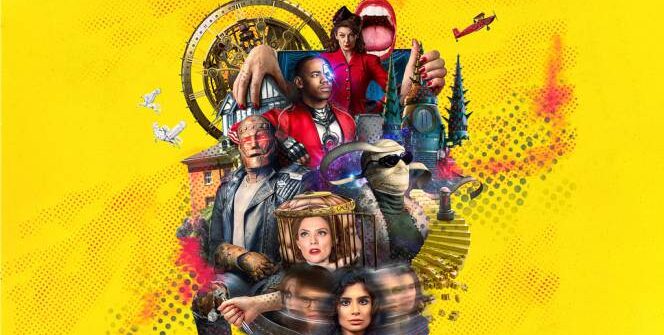
Image: Warner Bros.
Doom Patrol is back and they’ve brought the delightful weird with them. You’d need a show this fond of the surreal and this capable of weaving the bizarre into the moving in order to base a whole season on the looming threat (question mark) of the Sisterhood of Dada, a particularly odd bunch of metahumans wronged decades ago by season one nemeses and lethal-level buzzkills the Bureau of Normalcy, now out for aggressively artistic revenge. The cast were once again split into their personal quests, but each landed well this year, led to interesting new status quos for the gang, and the scene when their present selves were forced to confront the embodiments of their lowest moments was incredibly well done with some admirably clever tricks to get two of each core character (except Rita) playing off each other. All this plus Billy Boyd, Monsieur Mallah and the Brain, and Michelle Gomez joins the cast as the possibly sinister but entirely amnesiac Madame Rouge! Michelle Gomez is always a quality add for any series.
4. Ms. Marvel
Wow what a delight this show was.
Iman Vellani was an incredibly compelling lead, her family worked great as allies/foils depending on the episode, the supporting cast was almost all great (I was as surprised and confused as the rest of the cast that wanna be influencer Zoe Zimmer was part of the climactic sequence, they never fully sold her as a necessary part of the show). They didn’t go deep into the partition of Pakistan, but deeper than many American audiences might know. The Clandestines were kind of generic villains, and it was a a little surprising that they got their series wrap an episode earlier than expected, but, come on. It’s the origin story of a brown Muslim girl, of course racist cops were the bad guys all along.
And I like the franchise-maintenance reveal on the true source of her powers, and especially liked her reaction of “Whatever it is, it’ll be just another label.” A line that works on two fronts: 1) “This won’t define me,” and 2) “It’ll be another excuse for racist cops to come after me.”
(I do take some umbrage to Damage Control, originally a super fun comedy comic about the construction company that cleans up after super hero battles, becoming Racist SHIELD, but that’s not this show’s fault.)
And it was the first Disney+ Marvel show that didn’t feel like it had too many threads to wrap up going into the finale. Just a delightful watch.
3. Lucifer
More than one show I’ve enjoyed has floundered after writing a final season then getting renewed partway through it and having to say “Shoot, okay, now what.” One managed to flounder for an entire decade, but it can be tricky to bounce back. So it’s impressive that after pulling at minimum five different final season flexes in what was actually their penultimate season, Lucifer managed a fun, emotional, bittersweet but ultimately uplifting actual final season and final episode for Lucifer, his partner in crime-solving Chloe, and their friends both celestial and human. Lucifer managed to pack suspense, their trademark humour, a few solved murders, and a bunch of tugs on the heartstrings into one simple question, if I might namedrop the series finale of Sports Night (and also, sadly, my most hated bible epic): Quo vadis? Where are we going? What is Lucifer’s fate, and can he defy it? Should he even try? It’s fitting that a finale about how anyone can grow, change, or be redeemed should end this near-perfect after starting so much more… basic. This was a great farewell.
But it wasn’t quite our best redemption arc.
2. Peacemaker
Peacemaker was a flex. Showrunner James Gunn took a character he’d primed us to hate in The Suicide Squad and set out to make us love him, and by the gods he pulled it off. The humour might be crude at times but it’s hilarious, and the dark moments are equally gutting. John Cena’s doing amazing work, but he’s surrounded by an incredible ensemble, making every part of this black ops team someone you cling to and root for. From Cena to his team to Robert Patrick as Peacemaker’s white supremacist father to Annie Chang and Lochlyn Munro as the cops on Peacemaker’s tail to Mel Tuck as the elderly neighbour, every cast member would be the best part of a different show. Every episode would be the best episode of a different show. Peacemaker is simply a triumph and I can’t wait to see where it goes next.
And I will never, ever hit “Skip credits.”
1. The Boys
This show really does move from strength to strength. It’s darkly funny, bizarrely inventive, and deeply, deeply unsettling in its all-too-real commentary on the world hidden under a layer of capes and laser eyes. Season three tackled so many uncomfortably relatable themes: the frustration in trying to win through the high road when the people on the low road are just doing whatever they want and nothing stops them; the temptation and cost of fighting dirty when fighting clean keeps getting you nowhere; the fact that there’s a certain, very vocal demographic who always respect strength and power over decency and empathy, and no demonstrably evil deed will ever convince them they’re on the wrong side as long as it’s “badass.” I mean, you can see this from the meltdown a certain segment of Boys fans had halfway through the season as they finally began to notice Homelander isn’t the good guy in this story.
Every cast member brought their character to a new level, Solider Boy’s insight into entrenched toxic patriarchy was spot-on, nearly every episode had some scene or sequence no other show would have thought to do. Okay maybe Peacemaker but not to these extremes. It’s all the no-holds-barred blood and orgies aesthetic of the original comic, with far more biting and necessary commentary on the world. Few shows out there elevate their source material the way The Boys has started to. You might not feel at ease when the end credits roll, but it’s a great ride.
Sure am glad Ms. Marvel happened at the same time, I needed that positivity as counter-balance.
And that’s all for this year. Our very first Returning Champion, a lot of times good, bad, or just basically present… and with most of these shows being over or being Marvel shows with no second seasons guaranteed, next year promises to be a whole new playing field.
Speaking of, how are things going for Morpheus over on The Sandman? You sumbitches are gonna make me dislike Arthur Darvill, not cool…

